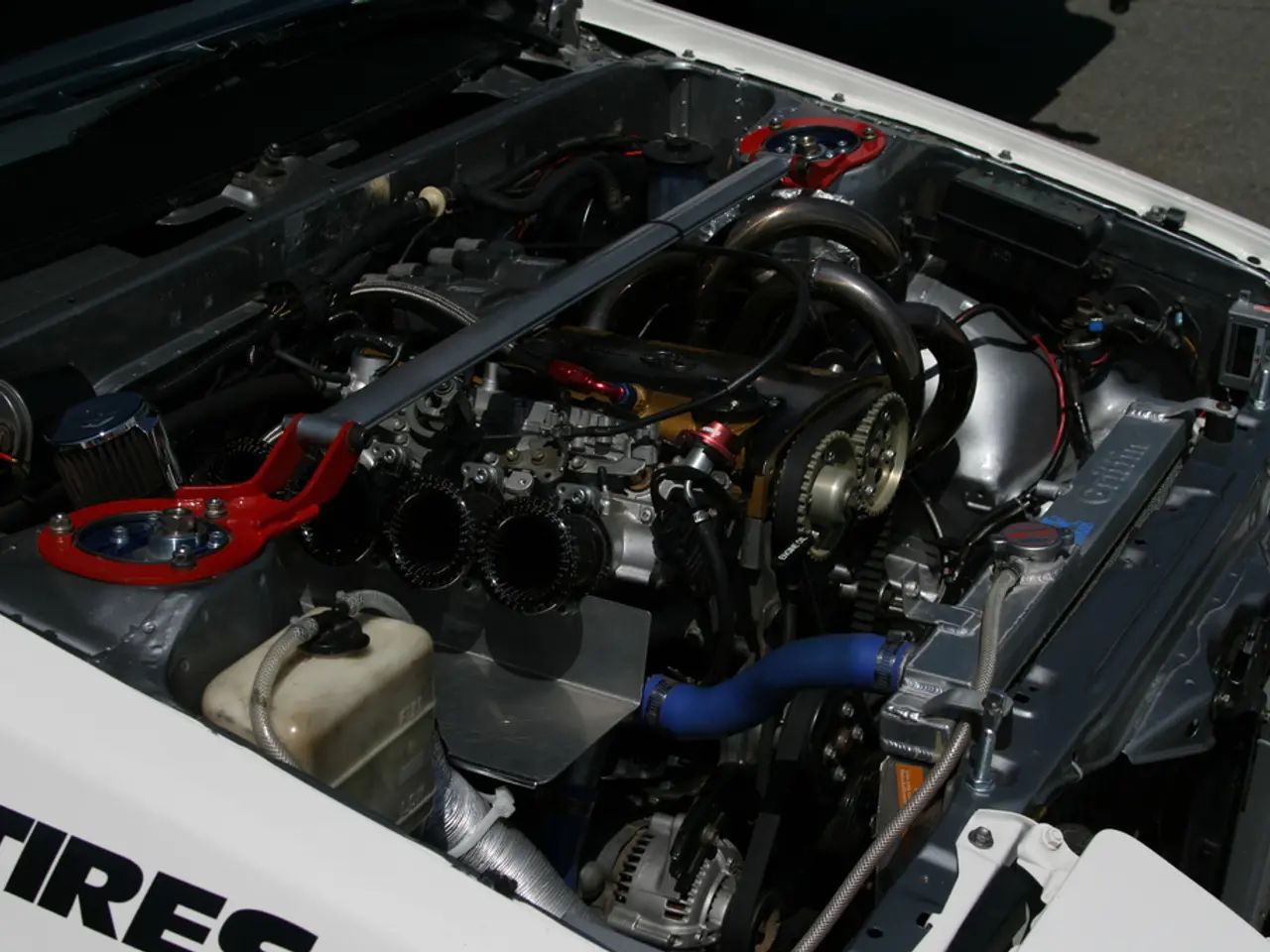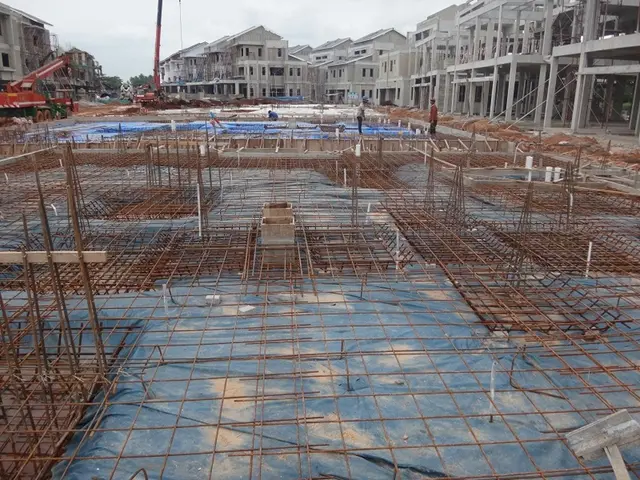Energy company EnBW transitions to gas and hydrogen with new power facility construction
In a significant step towards Germany's energy transition, EnBW has commissioned a hydrogen-capable gas turbine power plant in Stuttgart-Münster. This development marks the city's progress towards becoming one of the first coal-free cities in Germany, with the shutdown of coal and oil-fired power plants scheduled for spring 2026.
Peter Heydecker, Board Member for Sustainable Generation Infrastructure at EnBW, has emphasised that the power plant is expected to operate with up to 100 percent hydrogen from around the mid-2030s. This makes the Stuttgart-Münster plant one of the first in Germany to be hydrogen-capable.
The power plant, along with Heizkraftwerke Stuttgart-Gaisburg and Altbach/Deizisau, forms the Mittlerer Neckar district heating network. This network supplies heat to over 28,500 apartments, 1,400 businesses, and 380 public facilities in Stuttgart and the region.
The largest energy source at the EnBW site in Münster is waste incineration, supplemented by a large heat pump that has been delivering 24 megawatts of heat for district heating since last year. The heat pump's operation is set to replace three coal-fired boilers for district heating in winter.
EnBW's hydrogen-capable gas turbine power plants contribute significantly to Germany's energy transition and grid stability. They provide flexible, dispatchable power with a capacity designed for fuel switching from natural gas to hydrogen. The Stuttgart-Münster gas turbine plant is H2-ready with a combined cycle gas turbine (CCGT) capacity of 675 MW, expected to be operational by Q2 2027. Additionally, there is a 124 MW open cycle gas turbine (OCGT) plant in Stuttgart scheduled for commissioning in August 2025.
These gas turbine plants, part of a broader fleet of three H2-ready dispatchable gas power plants totaling 1.5 GW, allow a significant reduction in carbon emissions—up to 55% immediately by switching from coal or oil to natural gas and eventually to green hydrogen. Their dispatchability means they can quickly ramp up generation, providing essential grid balancing and backup capacity to integrate large amounts of intermittent renewable energy like wind and solar.
To enhance grid reliability and resilience, EnBW pairs these turbines with large-scale battery storage and grid stabilization assets near Stuttgart, such as Marbach’s 300 MW rapid-response power plant and battery storage facilities.
Baden-Württemberg's Minister of the Environment, Andre Baumann (Greens), has stated that hydrogen-capable gas power plants could serve as a bridge to a climate-neutral heat supply. This integrated approach supports Germany's energy security and stabilises the power grid during peak demand or renewable generation shortfalls.
In summary, EnBW’s hydrogen-capable gas turbines in Stuttgart enable flexible, low-carbon power generation that supports the energy transition by facilitating renewable integration, reducing emissions, and maintaining grid stability through rapid, reliable dispatchable capacity. They form a critical bridge technology supporting Germany's goals of decarbonization and energy system reliability.
References: [1] EnBW (2022). H2-ready gas turbine power plant in Stuttgart-Münster. Retrieved from https://www.enbw.com/en/media/press-releases/2022/h2-ready-gas-turbine-power-plant-in-stuttgart-muenster
[2] EnBW (2021). EnBW's hydrogen-capable gas power plants. Retrieved from https://www.enbw.com/en/media/press-releases/2021/enbws-hydrogen-capable-gas-power-plants
Read also:
- EA Relies on Madden and Battlefield to Drive Microtransactions Recovery
- Expense for Creating a Digital Platform for Fantasy Sports
- AI-Enhanced Battery-Swapping Station in Southeast Asia Officially Opens Its Doors
- Honda unveils blueprint for design, advanced driver assistance systems, electric vehicles, fuel efficiency, and technology development








